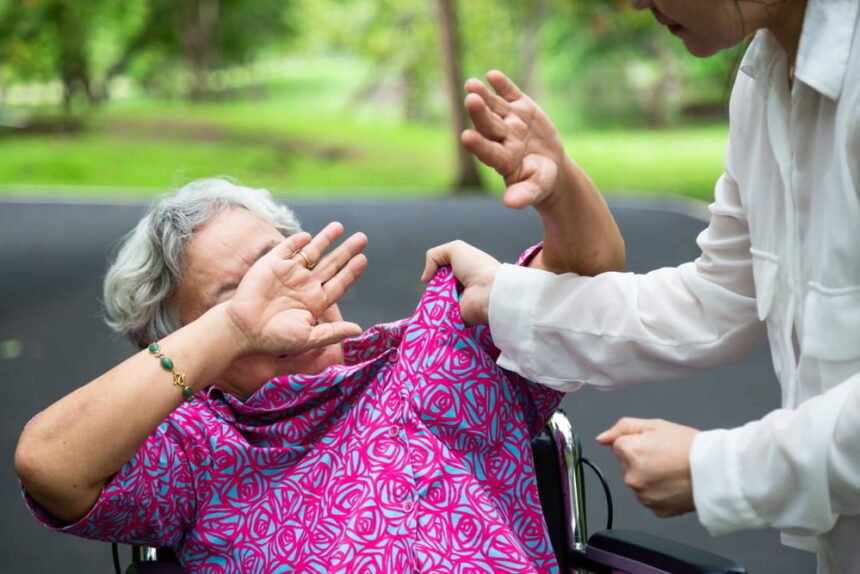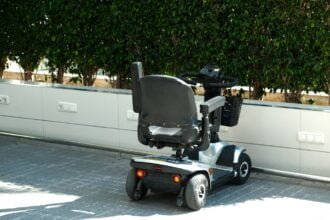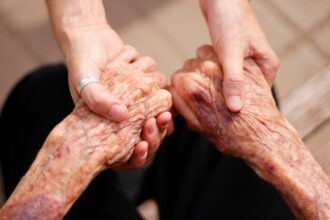Don’t people know we should respect and care for our elders? Sadly, elder abuse is a growing problem.
The term refers to an act in which an elderly person is harmed or distressed, including physical abuse, psychological abuse, emotional abuse, and sexual abuse.
Elder abuse covers things like abandonment, neglect, causing a serious loss of dignity, and even financial abuse. Such acts can happen in institutions like hospitals, nursing homes, and other care facilities.
The Scope of the Problem
The scope of the problem is bigger than you may think.
According to a 2017 report from the World Health Organization, fifty-two studies across twenty-eight countries showed that, incredibly, one in six people over the age of sixty received some kind of abuse.
Don’t underestimate the seriousness of the consequences. Elder abuse can result in severe physical and mental health problems, as well as social and financial consequences. Things like depression, cognitive decline, and physical injuries can all be caused by elder abuse.
Getting Help from a Nursing Home Lawyer
Nursing home residents and other elderly people have rights under federal and state laws to help ensure they receive the services they require without being mistreated.
Being treated with respect and dignity is just one of the rights that elderly people have.
So, if your loved one is sadly the victim of elder abuse, you at least have legal rights to hold individuals or organizations accountable and gain compensation.
Find out more from this caring and professional nursing home law firm: nursinghomelawyerpa.com.
What is the most common cause of elder abuse?
Research is actually pretty scarce when it comes to the causes of elder abuse, but the one thing that crops up, again and again, is understaffing.
In turn, that is largely seen as happening because institutions put profits over people.
But at the end of the day, it is still people working at care homes and other institutions that are responsible for the direct abuse.
Understaffing means staff members are spread too thin to give each resident the time and care they deserve. And a lack of quality care can result in elder abuse.
While understaffing may be the leading cause of elder abuse, we need to look at the two main things that the umbrella heading covers to understand the causes of elder abuse better.
Neglect
When elderly people are neglected by members of staff in nursing facilities and other institutions, it can result in elder abuse.
Neglect can cause both psychological and physical health problems. It could even lead to wrongful death.
Things like depression, bedsores, and muscle atrophy can all be avoided when a facility is properly staffed.
Abuse
Employees of understaffed nursing homes and other care facilities are sure to be more stressed than those working in fully-staffed environments.
Staff members will be picking up overtime and doing long hours, which will create even more stress and frustration. In turn, staff members can take out their frustrations on residents or skip important tasks that are vital for the residents’ wellbeing.
This type of elder abuse can be intentional or unintentional. Distressed staff members may not realize that they are actually committing elder abuse.
Caregivers’ Personal Issues Can Cause Elder Abuse
Like anyone else, caregivers have personal issues. Whether care facilities are understaffed or not, when caregivers have personal problems, those problems can affect the quality and quantity of care that they provide to residents.
However, when a facility is understaffed as well, it will contribute to the caregiver’s problems, even more, resulting in a higher chance of elder abuse.
Employees could have financial problems, relationship troubles, chronic fatigue, drug addiction, or even extreme psychological issues; any of which could cause employees to boil over and take their problems out on the residents they are supposed to be taking care of.
Also, caregivers who have financial problems could start stealing from residents, which is a form of elder abuse.
Other Potential Reasons Why Some Caregivers Abuse Elderly People
The field of elder abuse still lacks an adequate guiding theory to determine the exact causes of why caregivers commit elder abuse. More studies need to be completed.
But here are some of the existing theories from respected researchers as to why caregivers abuse the elderly people they are supposed to be looking after.
- They feel they don’t receive enough recognition from the elderly person for the job they do. That can result in violent behavior or stealing due to the caregivers wanting to get what they see as their fair share.
- They are influenced by personal relationships and larger societal influences.
- They have a childhood background involving abuse which has led them to try to solve their problems through violent actions.
- They learn their behavior from others around them, including coworkers.
Final Thoughts
There are many strategies in progress to try to help reduce elder abuse. Providing caregivers with adequate support and ensuring care facilities are fully staffed and properly functioning would seem to be two obvious answers.










